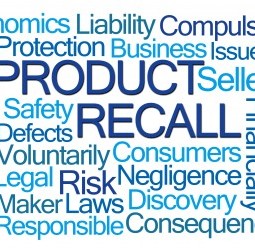FDA Recall Definition
When foods, drugs, medical devices, or cosmetics are found to be defective and hazardous, the United States Food and Drug Administration (FDA) will issue a recall. This recall allows all buyers of these harmful products to return them to the place of purchase and either be issued a full refund or new and suitable replacement for the item in question.
FDA recalls are almost always voluntary on the part of the manufacturer, which means a company discovers the problem itself and recalls the product on its own. At other times a manufacturer will recall a product after the FDA raises its own concerns. In some rare cases, the FDA will request or order a recall from a manufacturer.
Dangerous Drug FDA Recall
Since 2012, the FDA has recalled nearly 4,500 drug products for various reasons. The highest surge was in the middle of 2015 when the FDA recalled 540 different types of drugs. These included prescription medications and over the counter drugs which had unintended side effects, patient reactions, etc.
Drug FDA recalls are categorized into three types:
- Class I FDA Recall – This refers to a situation in which there is a reasonable probability that the exposure to or use of this dangerous drug will cause serious adverse health consequences or death.
- Class II FDA Recall – This refers to a situation in which exposure to or use of this dangerous drug may cause temporary or medically reversible adverse health consequences, as well as if the probability of a serious adverse health consequence is unlikely.
- Class III FDA Recall – This refers to a situation in which exposure to or use of a dangerous drug is not likely to cause adverse health consequences.
Medical Device FDA Recall
Since 2012, the FDA has recalled over 8,500 medical devices for various reasons. The highest surge was in late 2014 when the FDA recalled 643 different types of medical devices. These included catheters, filters, contraceptives, surgical tools, and many others. These devices are recalled by the FDA “because there is a reasonable chance that they could cause serious health problems or death.”
Medical devices are also divided into three types of recalls (Class I, Class II, Class III) in which the difference involves the likelihood of injury from the medical device.
FDA Recall Lawsuits
Just because a manufacturer may voluntarily recall their own product does not mean they are free from liability. In fact, they are admitting that there is a problem that could harm their consumers. Those who have purchased one of these recalled products and have suffered an injury as a result may file a lawsuit.
Frequently Asked Questions
Frequently Asked Questions
In the United States, a tort refers to a, “body of rights, obligations, and remedies that is applied by courts in civil proceedings to provide relief for persons who have suffered harm from the wrongful acts of others.”
What is MDL?
An MDL stands for multidistrict litigation and is a special legal procedure conducted in federal court that is designed to quickly conduct the handling of complex cases, which can include dangerous drug and medical device lawsuits.
Product Defects
It means the manufacturer made an error either in the design or the fabrication of a product that causes it to not work as intended. This can be especially dangerous in many cases, such as those of faulty medical devices and prescription drugs.
Defective Design
A defective design in a product is one that is so great, the product cannot be utilized for the purposes intended or is even made hazardous as a result of the defect, imperfection, or design flaw. In the case of medical devices, this can be a deadly mistake.




